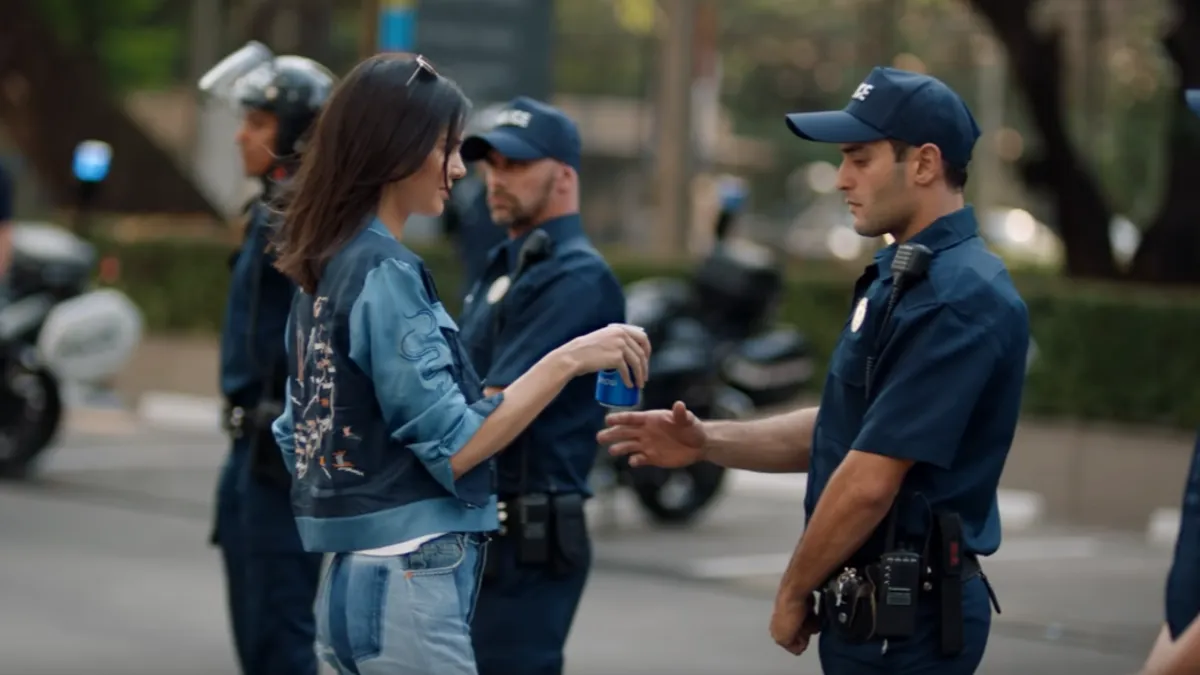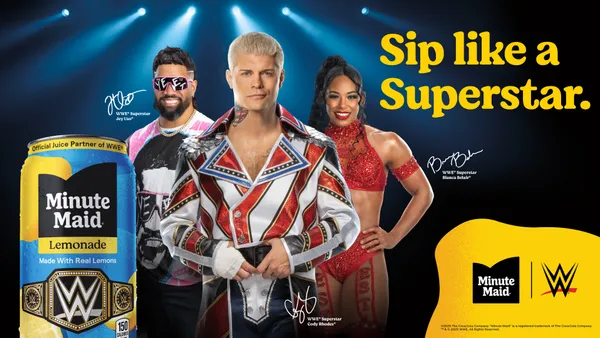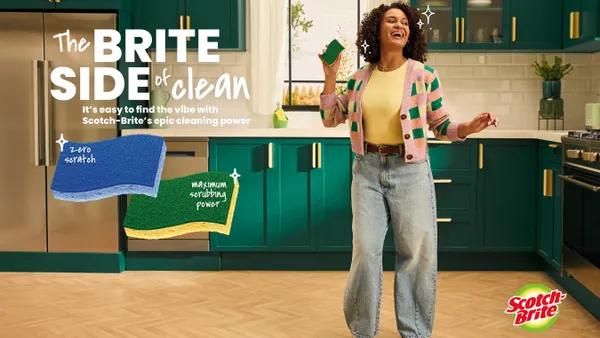Quick Facts
Pepsi
-
Time it took to get pulled:
1 day
-
Pepsi's brand perception:
Plunged to a 10-year low
-
Best fake-woke protest sign:
"Join the conversation."
Call it the anti-"Hilltop": Has any big-name brand advertisement in recent memory received backlash as immediate or widespread as Pepsi's "Jump In" from April? The spot, which shows Kardashian clan notable Kendall Jenner quelling tensions between police and protestors with a can of Pepsi, was so universally derided that the brand pulled and apologized for it after just one day.
The conversation didn't stop there, however, with Pepsi hitting its lowest consumer perception levels in almost 10 years after the rollout, according to YouGov. Most certainly the marketing fail of the year, the ad achieved a reputation directly opposed to its intended one, becoming a mockery target for everyone from Ronan Farrow to "Saturday Night Live." With plenty of bad or plain offensive brand campaigns to go around this year, what made Pepsi's effort achieve such a high level of ignominy?
The perfect storm
For one thing, the celebrity-centered flop hit a false note in a year already tense with societal and political division. A great deal of the outcry came from social media, where Twitter users continued to call out Pepsi's appropriation of imagery from real-life social justice movements like Black Lives Matter.
The inoffensive generic protest signs in Pepsi's woke Kendall Jenner ad are hilarious. pic.twitter.com/9t2h6YxCZL
— Ronan Farrow (@RonanFarrow) April 4, 2017
While some of the blame rests on Pepsi and in-house agency Creators League Studio for failing to pick up on these sensitivities, the scope of the ad's skewering served a broader lesson for marketers as well. It outlined the tightrope companies walk today as consumers demand more emotional resonance, progressivism and authenticity in their marketing but also appear increasingly averse to traditional branding.
"If that would've come out with a comparable theme 10 or 20 years ago, I don't think it would've been as big of a deal," said Petter Westlund, chief creative officer at B-Reel. "[But] reactions can ferment into a huge backlash today. When you are not attuned to your audience and to people, it can be a long fall."
Shaken up
Beyond the off-putting creative, which sapped any potential power with focuses on a sheltered celebrity like Jenner and generic messaging, the ad raised skepticism toward some big industry trends in 2017, such as an eagerness to bring more marketing activities in-house. The pivot away from third-party agencies, many argued, can create an insular brand bubble that stifles outside perspectives and the type of critical distance that might've stopped Jump In in its tracks.
Reactions can ferment into a huge backlash today. When you are not attuned to your audience and to people, it can be a long fall.
—Petter Westlund, Chief Creative Officer, B-Reel
And poor Jenner, who surely thought it would be just another day doing a celeb endorsement. In the aftermath of the scandal, she said it felt like her life — but probably just some of her business prospects — was over, underscoring an important point for influencers as well as brands.
"All influencers aren't created equal," said Matt Britton, CEO of Crowdtap. "If it was someone who had created a movement for social responsibility, maybe the feedback wouldn't have been so harsh."
Looking Forward
Pepsi doesn't appear to have too much to worry about with its branding for the long term, as it's sponsoring next year's Super Bowl halftime show. Performer Justin Timberlake has reportedly had to suspend his deal with healthy beverage brand Bai, however, since it's owned by competitor Dr Pepper Snapple Group, creating a sticky endorsement situation for Pepsi.















